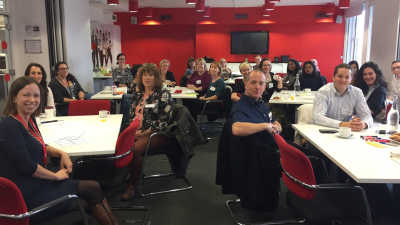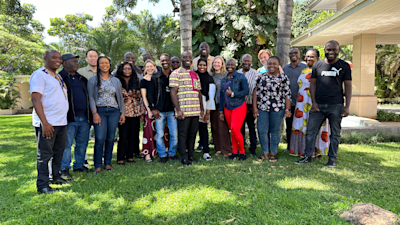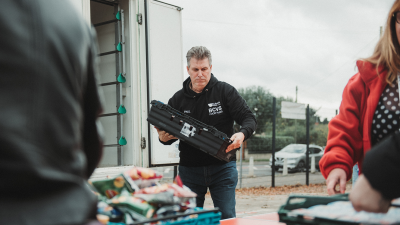
By Nissa Ramsay, Grants Digital Innovation Manager
In October, Comic Relief opened our Tech for Good funding initiative for 2016-17. The aim of the initiative is to support those organisations creating digital products and services that are both technologically innovative, and which have the potential to address some of our biggest social challenges.
To help develop our Tech for Good programme, we have been closely following growth and best practice within the sector, and as a result we seen some really inspiring projects that have combined innovative use of new technologies with a clear need for change to make breakthroughs that will have a real impact on people’s lives.
In 2015 we were asked to judge the prestigious NT100 awards(opens in new window) that recognise inspirational work in this area. The top three awards from our selection were Tap for Life (helping midwives delivering babies outside referral facilities), Instant Detect (a camera trap system using satellite technology for remote wildlife monitoring and preventing poaching, led by Zoological Society of London) and PulseGuard (an epilepsy alarm worn during sleep). Each of these projects demonstrated the impact technology can have organisations’ work, transforming their ability to achieve their goals.
This experience has helped us confirm the key principles and best practice that we would like to see in the social tech that we fund – in particular the importance of addressing a clearly defined problem effectively, being designed with user needs at their heart and making a clear tangible difference to those that need them.
At the same time, we’ve been testing our approach to supporting the Tech for Good field over the past few years. In 2015, we delivered a pilot funding programme that clearly proved that there was a strong demand for grant-making in this area, and quickly enabled us to demonstrate the potential for technology to be transformative in the way people live. For example, one of the projects we funded in the pilot stage, called Wayfindr, uses beacons and Bluetooth technology to help visually impaired people to move around indoor transport environments. Our grant enabled them to build an alliance of key partners to start developing a consistent way of providing this navigation. This has won numerous awards and attracted £1million from the Google Impact Challenge Fund.
In addition to the impact they can have on people’s lives, projects such as Wayfindr have also demonstrated how Tech for Good funding offers a launch pad for projects, helping them progress to the next phase of their development. This has spurred us on to find and support digital projects within the charitable sector that can become beacons of best practice and lead the way for Tech for Good.
For 2016-17 we will publish our longlist of applications to help build an increasing knowledge of organisations working in this space and in turn, to help them attract new investment.
We know that the innovation and quality of technological development can only improve with more collaboration and sharing of knowledge. For this reason, the application will be via a video hosted on YouTube or Vimeo. We are also co-funding this initiative with Paul Hamlyn Foundation(opens in new window), to help support the development of their digital funding strategy.
Ultimately, our goal is to fund some great projects that have the potential to effect real social change. What makes these so exciting and important is that they are genuinely designed with the needs, voices and experiences of those they are intended to benefit at their heart, based on real data. We’re looking forward to showcasing our final funded 10 projects, and sharing the learning from their development work.
Ultimately, we know technology will change all of our lives (for better or worse) and help us to tackle the world’s biggest problems. Much of the investment and innovation in this area will come from the largest technology, communications and pharmaceutical companies. However, some of the most innovative solutions emerge from the need to address a specific problem and later realising its wider application. What Three Words is a prime example – the need for every place on earth to have an address. Charities, social change projects and other third sector initiatives therefore have a huge role to play helping to identify and develop solutions that will transform people’s lives, which is why we are so excited to be launching the new funding programme.


